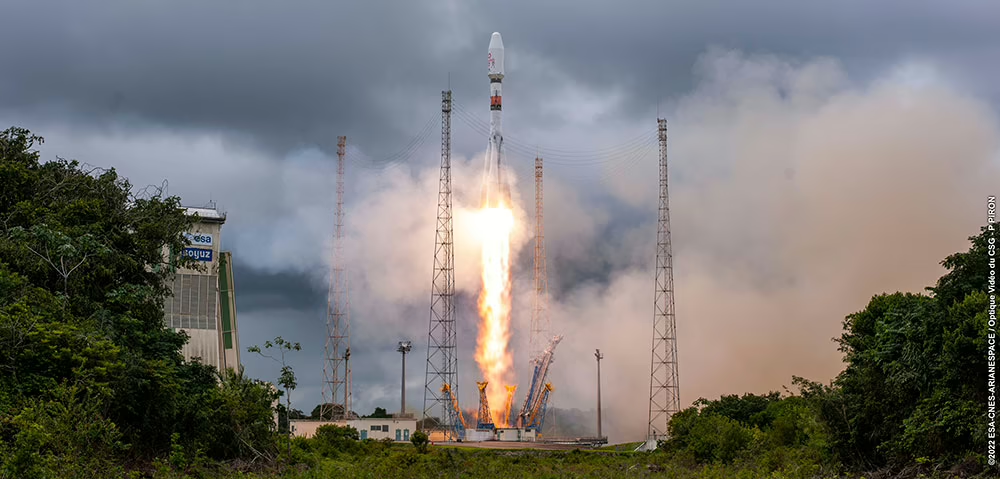
Credit: Arianespace
MOSCOW—Roscosmos will suspend launches of Soyuz rockets from Europe’s spaceport in French Guiana in response to European Union sanctions on Russia, the CEO of the Russian space corporation Dmitry Rogozin said Feb. 26 on social media. The Roscosmos subsidiary—Progress Rocket Space Center—which...
Subscription Required
This content requires a subscription to one of the Aviation Week Intelligence Network (AWIN) bundles.
Schedule a demo today to find out how you can access this content and similar content related to your area of the global aviation industry.
Already an AWIN subscriber? Login
Did you know? Aviation Week has won top honors multiple times in the Jesse H. Neal National Business Journalism Awards, the business-to-business media equivalent of the Pulitzer Prizes.
